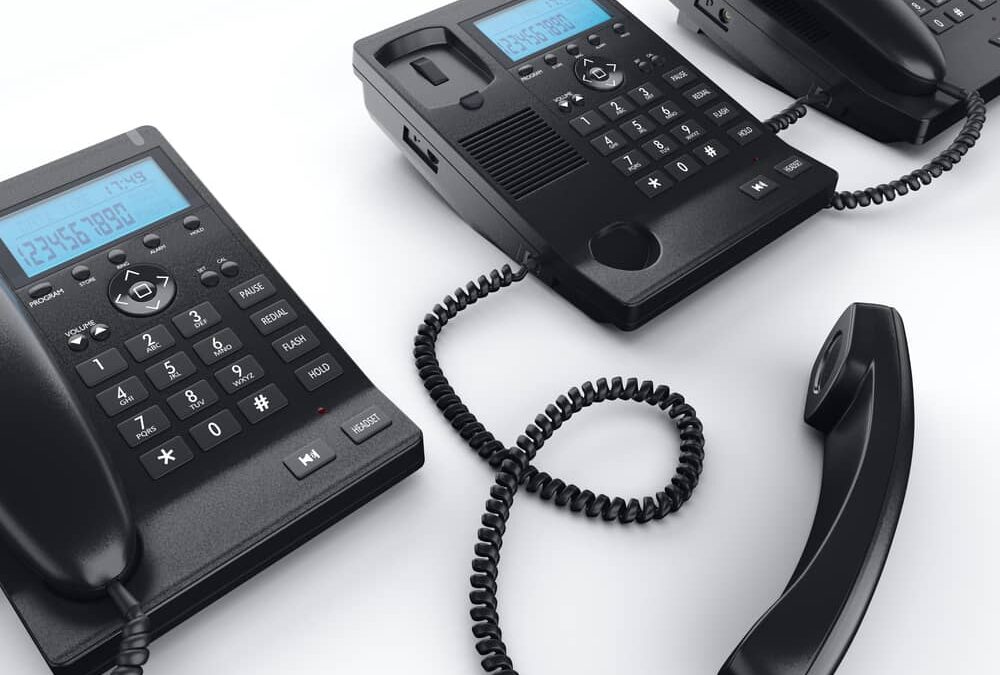Communication remains at the heart of every successful business in today’s digital age. Establishing a reliable communication channel with clients, partners, and the team is paramount for small businesses.
Small business phone systems play a pivotal role in this. However, setting up these systems can be complicated. In their quest to establish effective communication, many businesses often need help with common pitfalls.
This article aims to shed light on these mistakes, ensuring that your business reaps the full benefits of a well-integrated phone system.
Not Assessing Business Needs Properly
Before investing in small business phone systems, it’s crucial to take a step back and evaluate your business’s needs. Every business is unique, and a one-size-fits-all approach rarely works.
For instance, a startup with a remote team might prioritize mobile integration and video conferencing features. In contrast, a local brick-and-mortar store might focus more on customer support lines and voicemail capabilities.
You must thoroughly assess your business needs to avoid over-investing in features you don’t need or missing out on essential functionalities. It’s always wise to list your requirements, forecast potential growth, and then choose a phone system that aligns with these needs.
Overlooking the Scalability of Small Business Phone Systems
Scalability is often a buzzword in the business world, but it’s an aspect that should be considered regarding phone systems. As your business expands, so will your communication needs. The phone system you choose today can accommodate the company you’ll run tomorrow.
Imagine the inconvenience of changing your entire phone system just because you’ve added more team members or expanded to a new location. Not only is this a logistical nightmare, but it’s also a significant expense.
When exploring options for small business phone systems, always consider their scalability. Whether adding new lines, integrating with advanced software, or expanding to multiple locations, your chosen system should be flexible enough to grow with you.
Neglecting Integration with Other Business Tools
In the interconnected world of modern business, isolated systems can be a hindrance. Your small business phone systems shouldn’t just be a standalone entity; they should seamlessly integrate with the other tools and software you use daily.
For instance, integrating your phone system with your Customer Relationship Management (CRM) software can streamline client interactions.

When clients call, their information and call history can instantly appear, allowing for a more personalized and efficient conversation. Similarly, integration with email platforms can help log voicemails or missed calls, ensuring no communication slips through the cracks.
By paying attention to these integrations, businesses often miss out on enhanced efficiency and a more unified approach to operations. Always explore the integration capabilities of any phone system you’re considering.
Failing to Train Staff on the New System
Implementing a state-of-the-art phone system is only half the battle. The real challenge often lies in ensuring every team member knows how to use it effectively. Small business phone systems can be packed with features, but they’re only helpful if your team is well-versed with them.
Consider organizing training sessions when introducing a new system or adding new features. These sessions don’t have to be lengthy or overly technical. A brief overview, hands-on practice, and a Q&A session can go a long way.
Remember, the goal isn’t just to teach your team how to answer and make calls. It’s about ensuring they can leverage your phone system’s features, enhancing productivity and customer experience.
Ignoring the Importance of Mobile Integration in Small Business Phone Systems
The modern business landscape is increasingly mobile. With remote work becoming more prevalent and teams often spread across different locations, the need for mobile integration in small business phone systems has never been more evident.
A phone system that lacks mobile capabilities can hinder your team’s flexibility. For instance, if one of your team is traveling or working from a different location, they should still be able to access the phone system, make calls, join conferences, or even check voicemails. Mobile integration ensures that your team remains connected, irrespective of where they are.
While traditional landlines might not offer this feature, many modern small business phone systems have dedicated mobile apps or features. Opting for such systems can significantly enhance your team’s mobility and responsiveness.
Not Considering Future Tech Advancements
Technology is ever-evolving. What’s cutting-edge today might become obsolete in a few years. When investing in small business phone systems, looking beyond the present and considering future technological advancements is essential.
Opt for systems that receive regular updates and come with a roadmap for future features. This ensures that you’re always equipped with the latest functionalities and safeguards your investment in the long run.

Moreover, keep an eye on emerging trends in communication technology. Whether it’s the rise of AI-driven communication tools, advanced analytics, or enhanced security features, your chosen phone system should be adaptable and ready to incorporate these advancements.
Overlooking Security Features in Small Business Phone Systems
Today, data breaches and cyber threats are rampant. This means security should be at the forefront of any business decision, and choosing a phone system is no exception. Small business phone systems handle sensitive information, from client details to internal communications. Ensuring this data remains protected is paramount.
When evaluating phone systems, pay close attention to their security features. This includes encryption for calls and messages, secure access controls, and regular security updates. Additionally, consider systems that offer two-factor authentication or biometric access to add an extra layer of protection.
Remember, a security lapse in communication can have dire consequences, from data theft to a tarnished reputation. Prioritizing security features in your phone system is not just a good practice; it’s necessary.
Choosing a System Based Solely on Price
Budget constraints are a reality for many small businesses. However, when it comes to essential tools like phone systems, basing your decision solely on price can be costly in the long run. While finding a plan that fits your budget is essential, it’s equally crucial to ensure it meets your business’s needs.
A cheaper system might need more essential features, have limited scalability, or even come with hidden costs like expensive upgrades or high maintenance fees. On the other hand, an overly expensive system might have features that your business can use without.
The key is to strike a balance. Research various small business phone systems, compare their features against their prices, and choose one that offers the best value for your investment. Sometimes, spending more upfront can save significant costs and hassles.
Neglecting Customer Support and Service from Providers
Even the most intuitive and advanced small business phone systems can encounter issues or require occasional troubleshooting. When these situations arise, having a responsive and knowledgeable customer support team from your provider is invaluable.
Before committing to a phone system, research the provider’s reputation for customer service. Are they known for quick response times? Do they offer multiple support channels like phone, email, and live chat? Is their support team trained to handle a wide range of issues?
A phone system is a long-term investment; over its lifespan, you’ll likely need to interact with the provider’s support team multiple times. Choosing a provider known for excellent customer service can save you countless hours and frustrations.
Not Regularly Reviewing and Updating the Small Business Phone Systems
The business world is dynamic, and your needs today might differ from your needs a year from now. Regularly reviewing and updating your phone system ensures it continues to serve your business effectively.

Set aside time annually or bi-annually to assess your phone system. Are there features you’re not using? Are there new requirements that your current system doesn’t meet? Are there updates or upgrades available that can enhance functionality or security?
Regularly reviewing your small business phone systems ensures they evolve with your business, always providing the tools and features you need to communicate effectively and efficiently.
Conclusion
Navigating the intricacies of small business phone systems can be daunting, but the rewards of a well-chosen and effectively managed system are undeniable. From enhanced communication to improved operational efficiency, the right phone system can be a game-changer for any small business.
By being aware of common mistakes and proactively addressing them, companies can ensure they reap the full benefits of their communication tools. As with any significant business decision, due diligence, research, and focusing on long-term needs over short-term costs can make all the difference. Remember, in the world of business communication, it’s not just about having a phone system; it’s about having the right phone system.
Considering the complexities involved, some businesses may find it advantageous to hire a managed IT service to optimize their phone system’s performance. By avoiding the pitfalls discussed in this article, you’ll be well on your way to ensuring seamless, efficient, and effective communication for your business.

